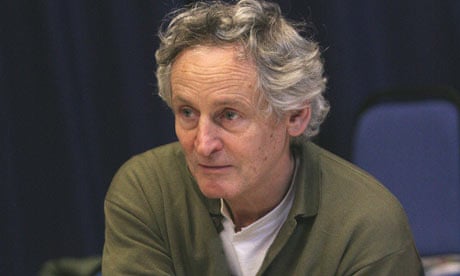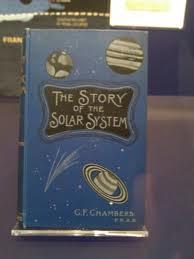Vocal Plan
In order for an actor to be convincing one of the key elements and instruments an actor uses is their voice. The voice has a massive impact on the tone, style, setting and more. For me to achieve my ambitious dreams of becoming an actor my voice will need to be clear. As of this I will create a developed and challenging vocal plan that will stretch my vocal capabilities. I have comprised an 8 step vocal plan that will look at key areas in the voice and also targeting weakness that I believe I have.
Step 1: Spinal Rolls
I felt the spinal roll was the best thing to first do in my vocal plan warm up as it relaxes the body and gets the actor into the mindset of working the voice.

The best way in which to excute the spinal roll sin my opinion and what best works to help me relax and relieve tension from my spine and help me with my posture is to lift up on to your feet stretching your arms out up above you. Then I fold the arms in at the elbows come down from lifting up on my feet, relax my shoulders then let my arms drop to my side. Once in this position I put my chin to my chest and start to roll down from the back keep my knees unlocked and letting my head follow down first. When in this position show by the image on the right, I let my arms hang loose and relieve my head by nodding yes and no while in this position. This helps with tense points which in turn helps with posture. After this I will then roll back up to neutral and do it again 3 more times. I felt this is a good amount of time to spend on spinal rolls in my vocal plan as they are quite a big step in my overall plan and I feel my posture is one of my weaknesses.
Step 2: Stretches
In order to be able to release the voice and gain clarity you have to be warmed up and I believe the best way to warm up is the first do body exercises.
Some stretches that help me and I believe warm up the body best also includes using the voice. It's called Rubber Chicken. The exercise involves your arms and legs, first you count to 8 and do 8 shakes of the arm in your left arm, you then do eight shakes in the left arm, the 8 in the left leg and eight in the right. You then copy this movement by dividing it by 2. I then do 4 shakes on each arm and leg then 2 and then finally 1. After I have done the final one, I find it best to shake out one last time completely to warm up the body. This exercise can also use the voice as you can count the numbers out loud in different accents and different voices to help projection and also accent work whilst also warming up the body and getting ready for the rest of the vocal plan. I normally do this twice in order to warm the body up.
Step 3: Resonators
In the body there are many different resonators, I feel the best way to wake up your resonators is to do a rhyme that focuses on each resonator. There are 3 main resonators that are looked at with this, the head, nose and chest resonators.
The rhyme is 'Why fly so high said naughty Nora whilst eating an apple with Zoey the Zebra in the Zoo'. I think this rhyme is perfect for helping with the resonators as it looks at all three resonators whilst in the same rhyme. The first best of the rhyme is 'Why fly so high...' This focuses on the head voice and is done in a higher pitch register to match the head voice. The next part is 'said naughty Nora', this looks at the nose resonator and is said through the nasal voice which doesn't involve much work from the mouth its self. I think this part of the rhyme is best suited to the nasal resonator as the actor says two words beginning with N which sound very nasal. The last part is finally done in the chest voice 'whilst eating an apple with Zoey the zebra in the Zoo'. This opens up the actor to the chest voice and helps to understand the different registers that can be used in performances. I also add actions to this resonator exercise to help me get the tone of each register. For the head voice I put my head and say the words, when I work the nasal resonator I massage my nostrils and finally for the chest voice I pound my chest softly and this helps me to access the different voices. I do this four times so I know that each resonator has woken up and they are ready to be used.
Step 4: Face Massages

Face Massages help to relieve tension from different vocal areas including the jaw, which I find can be quite a tense area. I felt face massages worked best at step 4 as I have just done quite a strenuous exercise for resonators at step 3.
I think one of the best massages to do is to take both hands, take where your thumb meets the end of your hand and massage it from the top of the cheek bone down to the jaw, this exercise helps me to relieve tension and warm up different vocal points. I do this about 5 times and I find really great results as it helps to relieve tension from one of my main points of tension the Jaw.
Step 5: Tongue Exercises

As I have just warmed up the voice I felt it would next be best to exercise another key part of the vocal organs, the tongue.
The tongue is a key area to articulation in the voice and also helps with breath control and many other things. A good tongue exercise is to take your index finger and place it on your teeth as if you are telling someone to be quite. You then stick your tongue out to a comfortable length against the finger and you push your tongue against your finger, this helps strengthens the muscles in the tongue. Another exercise that is good to do is to do a circle with your tongue in your mouth, first going along the top ridge of your teeth going to your bottom teeth and going round in a circle, I do about 5 circles one way and then 5 the other way to make sure my tongue is warm. The exercise where I push my tongue against my finger I do for about ten second 3 times, this helps gain muscle in the tongue so it is stronger for the next time you use it.
Step 6: Tongue Twisters
As I have just recently warmed up the tongue is step 5 I felt it would be good to stay with tongue exercises and do some tongue twisters. I find that my 'th' sound gets mixed with my 'f' sound quite a lot, so I will focus on tongue twisters which help combat that.

I felt the urge to create some of my own tongue twisters in order to bring some originality to my vocal plan and make it more interesting. One I sometimes do is 'Tom the thumb felt the need to fly', this tongue twister includes both the 'th' sound but also the 'f' sound in the same sentence this means I will really need to think about the word that is coming up. I find the best way to help articulation is to do a tongue twister and then start to do it faster to increase articulation. This helps me as I have less time to think about what sound comes next and it is if I am saying the words as the thought comes to me which would happen. I also sometimes find some tongue twisters on my phone as I think they have better tongue twisters which help with the 'th' sound. One I found that is good is on the image to the right. There are many 'th' sounds in "There those thousand thinkers were thinking how did the other three thieves go through." This is a good tongue twister as it helps because there is a lot of 'th' sounds.
Step 7: Breathing Exercises
From recent things I've been in I've been told that my breath control was a weakness. This is something I want to look at as I don't want my breath control to hinder me in the future.

One exercise that I use to really help breath control is very effective, I first take both my index fingers and put one finger at where my ribcage ends in the center of my body and the other just underneath my belly button, it is best to put the fingers here as this is where the diaphragm is located which is the main muscle used for breathing, the diaphragm is shown by the diagram on the right. I then breath in for 4 counts hold for four counts and then blow out in short burst twice before releasing the rest of my breath with a long exhale. This helps increase your breath capacity as you are focusing on your diaphragm, and the diaphragm is pushing out on the bursts to increase the amount of work it is doing. As the diaphragm is a muscle it gets better when it is worked, like you would work other muscles. The more you exercise it the stronger it gets.
Step 8: Alexander Technique
As I said before my posture is a weakness of mine. As this is the last step I felt it would be apt to look at my posture once more and to use this technique as it also helps the actor to cool down after the 7 steps that came before.

Alexander technique is a technique crafted to help the actor with their posture, it requires the actor to get into the semi supine position which is when the actor lays on the floor with their knees up as shown by the photo on the right. As you can see the woman also has a book underneath her head, this helps the body to get into the right position as the spine is in alignment with the head. The book however isn't needed if not accessible. After in this position it is best to image the areas where you feel tense and imagine a red ball of heat fixing the points of tension. It is also good to imagine your body sinking through the floor so that you aren't holding tension in your back. I think this is a good exercise to do as the last step as it helps you to cool down whilst also looking at your posture.

















